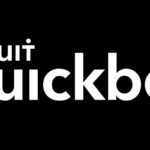Podcast: Play in new window | Download | Embed

Do you use your personal account for business? Is it a good idea? Is it even legal?
To download the audio file to your computer, please right click on this link and choose save link as, or save target as, depending on your browser.
If you would rather read while you listen or you prefer to just read without the audio or video, we have provided the full transcript further down the page for you.
Be a part of the Financial Gym Inner Circle for Free and be amongst the first to get:
- Updates on ways to improve your day to day business money and productivity issues
- Real life stories
- Free video tips and tutorials
- Downloads and templates to keep and use in your business
Click here to subscribe to my mailing list
Resources and Items Mentioned
Open a business account in less than fifteen minutes right here
Transcript
It may seem simpler to use your personal account for your business, particularly when starting out.
But with the tax office always looking for ways to uncover irregularities in small businesses, there are definite pros and cons.
It is not a legal requirement to have a business bank account if you are a sole trader/self-employed or in a partnership. But it is if you are a limited company. So if you are a limited company, get it sorted.
I know there are sometimes reasons that make this difficult. If you have had previous credit problems for example, it may be difficult to open any current account let alone a business one but as your circumstances improve I would strongly advise it you to open one as soon as possible.
If you are a partnership, even though you are a collection of two or more sole traders, the fact that there is more than one of you means that the personal bank account thing is just too messy. Imagine separate accounts for each partner and trying to amalgamate them into one set of partnership accounts. Nightmare!
Banks do not want you to use your personal account for business because they are structured to cater to the two different types of account holder. And most importantly if you use your personal account for business, they make less money out of you because there are usually no fees attached to personal bank accounts for standard transactional use.
You may view this as a major advantage, which I agree; it is. But there are some real disadvantages that may outweigh them.
Once you use your personal account as part of your business dealings, if you ever had a tax inspection you have opened the door to your personal affairs for the tax office to walk through and scrutinise more than you bargained for. Inspections are limited to the boundaries of your business dealings. But if you bring your personal bank into the equation you stretch those boundaries and then they are all over you.
Unless that is – you have been scrupulous about keeping your business money completely separate from your personal money.
If you are using a personal bank account but every transaction on it relates exclusively to your business, and you can verify that with supporting paperwork then great.
But all too often I have seen accounts where this is the case (most of the time) and then random purchases for personal items pop up here and there.
Like the monthly car payments, which you have left as they are, because it would be too much hassle to move to another account.
Though to be fair; this happens just as often with business accounts too.
The difference is that with a business account items are regarded as business related first unless shown to be otherwise or are unknown. While with a personal account the opposite is true.
Come tax time you will have to separate your business income and expenses from your personal transactions. Not only will it take unnecessary time, it can cost you more in accounting fees because you are giving your accountant extra work.
I have even had clients who signed up for one of my bookkeeping packages that could have been paying much less. We would spend so much time dealing with lots of entries that were not business related, but because they appeared on the bank statement we had to account for them. So apart from the increase in price, they were paying for transactions that they could not even claim for so they were hit by a double whammy.
So to recap:
A) If you are a limited company and you don’t have a business account. Open one.
The money in the account belongs to your company not to you. Even if you and the company have the same name you are treated as separate entities.
B) If you are a sole trader of member of a partnership; the legalities are not as cut and dried as with limited companies but business is tough enough without making it complicated so I urge you to do one of two things:
I. If you are going to continue to use a personal account, don’t mix business money with personal money and use the account exclusively for business dealings. Have a separate personal account for your private affairs.
II. Better still, open a business bank account and be done with it. It will also make you appear to be a more credible business rather than someone who has a hobby that you make a bit of money from.





